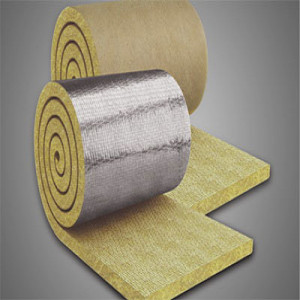| Ayegh Sepahan |

| Registration Date | 30 Sep 2018 |
| Revision Date | 30 Sep 2018 |
| Share |
Textile Fibers, Yarns, and Fabrics
Thermal Insulation FiberRock wool is thermal and acoustic insulation with a Temperature tolerance of + 750 ° C and a melting point of 1300 ° C and a cold-bearing temperature of -30 ° C. The rock wool has a very low heat transfer coefficient and its insulation strength is 33 times the concrete wall and 22 times the brick wall. Other features of this type of insulation include: Non-toxic, recyclable and environmentally friendly Dimensional, physical and chemical stability Being light The lower cost than other insulators (elastomeric, polymeric, and foam types) Simple and convenient installation The amount of "water absorption" of this product was evaluated in accordance with the National Standard " Thermal insulation products for buildings - Factory made mineral wool products - Specifications" to ISIRI No. 8116. Short-term water absorption is equivalent to increasing sample weight in the presence of rain for 24 hours.
Heat always flows from systems with higher temperatures to systems with lower temperatures, and this phenomenon is inevitable. But the rate of this flow can be greatly reduced, and this is the main purpose of thermal insulators. In general, insulation refers to materials that prevent or minimize the flow of energy or some of the materials in a controlled part and from penetrating it into optimal parts. Insulators are used for heat insulation, refrigeration, moisture, electrical, fire and sound insulation. The conductivity of the insulation is low, and on the contrary, their thermal resistance is high. Rock wool is part of the family of thermal insulations consisting of mineral fibers with a diameter of 4 to 9 microns and a length of 5 to 85 mm, which is why it is also referred to as Mineral Wool. The primary material for the production of this insulator, the basalt rock, is from the igneous rock group that survives volcanic activity. The structure of rock wool fiber provides excellent acoustic properties and sound absorption for this type of insulation. Also, high thermal resistance, non-flammability and smoke distribution, puts this kind of insulator as one of the fireproof insulators. In this way, wool is the best type of thermal insulation, audio for the oil, gas and petrochemical industries, buildings and... . Rock wool can absorb water by exposure to rainwater and moisture in the environment, and, in addition to a heightened weight gain, creates a bad smell in the environment. The thermal conductivity of the rock wool mineral fiber is also significantly dependent on the amount of water absorption. In the presence of moisture due to the conductivity of water, the thermal conductivity increases. In addition, the wet insulation leads to corrosion. To avoid these problems, this product contains hydrophobic nanoparticles, which minimizes the amount of water absorption.